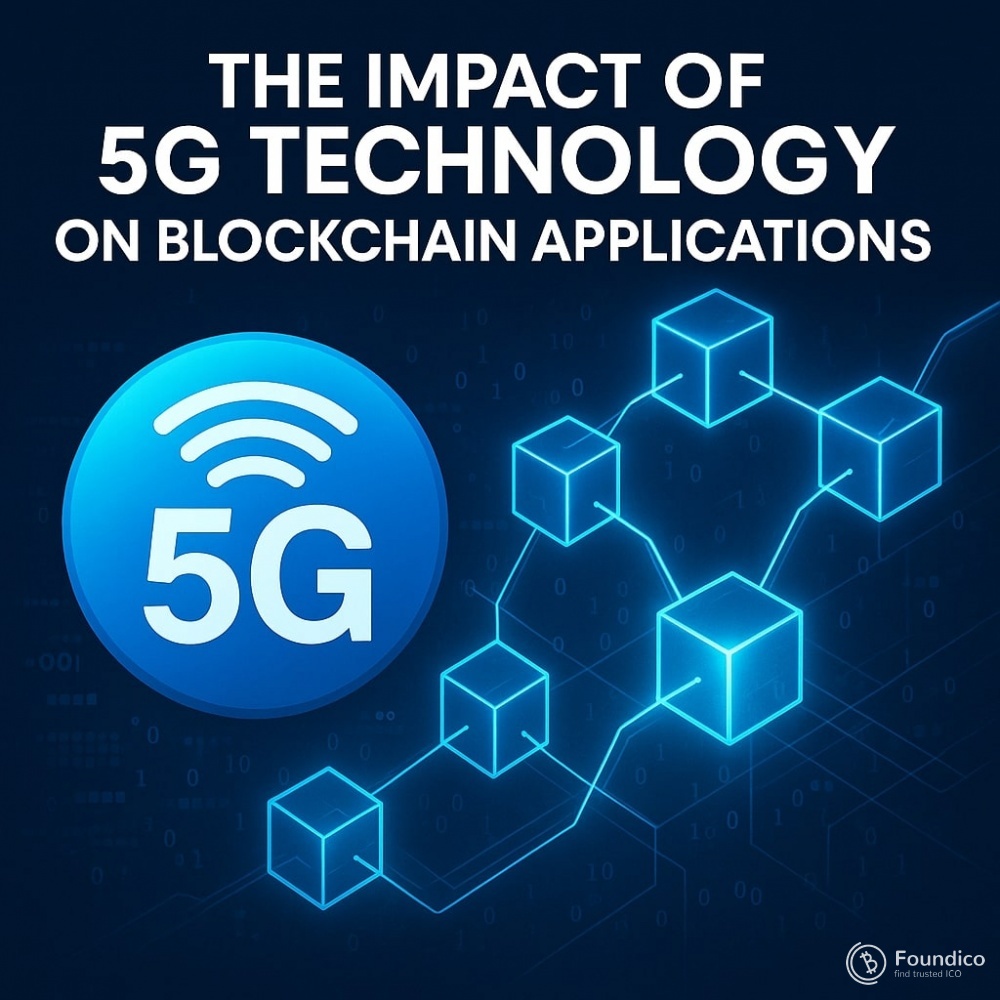The Impact of 5G Technology on Blockchain Applications

By Dr. Pooyan Ghamari, Swiss Economist and Visionary
The rapid advancement of 5G technology promises to revolutionize the digital landscape, enhancing connectivity with unprecedented speed, ultra-low latency, and massive device capacity. When combined with blockchain technology—an innovation that ensures decentralized, secure, and transparent transactions—the fusion creates transformative potential across industries. This article explores how 5G technology is impacting blockchain applications and shaping the future of decentralized networks.
Understanding the Synergy Between 5G and Blockchain
Blockchain technology underpins decentralized ledgers that record transactions in a secure and immutable way. However, traditional blockchain networks face challenges such as scalability limitations, network latency, and high energy consumption.
5G technology offers significant improvements in network performance, enabling faster data transmission, near-instantaneous communication, and support for billions of connected devices. This synergy addresses some of blockchain’s inherent challenges, unlocking new possibilities for decentralized applications (dApps) and smart contracts.
Enhancing Blockchain Scalability and Speed
One of the primary limitations of blockchain technology today is scalability. Networks like Bitcoin and Ethereum often experience bottlenecks due to limited transaction throughput and slower confirmation times.
5G’s ultra-fast data speeds and low latency reduce network congestion and improve the responsiveness of blockchain systems. Real-time data transmission ensures that nodes can synchronize quickly, accelerating transaction verification and block propagation. This paves the way for scalable blockchain networks capable of supporting high-frequency, data-intensive applications such as decentralized finance (DeFi), supply chain tracking, and Internet of Things (IoT) integration.
Empowering the Internet of Things (IoT) Ecosystem
The convergence of 5G and blockchain is particularly impactful for IoT ecosystems. IoT devices generate vast amounts of data requiring secure, transparent, and tamper-proof management—areas where blockchain excels.
5G enables reliable, high-speed communication between billions of IoT devices, while blockchain provides a decentralized infrastructure for device identity management, data sharing, and autonomous machine-to-machine transactions.
This combination facilitates smart cities, automated supply chains, and secure healthcare monitoring systems, where data integrity and real-time processing are crucial.
Strengthening Security and Privacy
5G’s architecture supports network slicing—creating isolated, customizable virtual networks tailored to specific applications or user groups. This capability enhances blockchain’s decentralized security model by providing dedicated communication channels for sensitive transactions.
Moreover, blockchain’s cryptographic techniques combined with 5G’s improved authentication protocols enhance privacy protections. These advances reduce vulnerabilities to cyberattacks, fraud, and data breaches, critical for financial services, healthcare, and government applications.
Accelerating Adoption of Decentralized Finance (DeFi) and Smart Contracts
DeFi platforms and smart contracts require fast, reliable, and secure network environments to function effectively. The low latency and high throughput offered by 5G networks facilitate seamless execution of complex smart contracts and real-time DeFi trading activities.
With 5G, decentralized applications can support a growing user base without compromising performance, creating opportunities for new financial products and services that are faster, cheaper, and more accessible.
Challenges and Considerations
Despite the exciting prospects, integrating 5G and blockchain is not without challenges. Infrastructure deployment costs, regulatory uncertainty, and interoperability between various blockchain protocols require coordinated efforts among industry stakeholders.
Data privacy laws and cross-border regulations also impact how blockchain applications leveraging 5G networks operate globally.
The Future Outlook
The interplay between 5G technology and blockchain heralds a new era of digital transformation. Industries from finance and logistics to healthcare and energy will benefit from faster, more secure, and scalable decentralized solutions.
Emerging trends such as edge computing, combined with 5G and blockchain, will enable processing and storing data closer to the source, reducing latency further and enhancing system resilience.
As these technologies mature, their integration will redefine trust, transparency, and efficiency across economic sectors.
5G technology is a catalyst that unlocks the full potential of blockchain applications. By overcoming speed and scalability barriers, enabling secure IoT ecosystems, and supporting advanced decentralized services, 5G is shaping a future where blockchain can thrive on a global scale.
As a Swiss economist and visionary, I believe that embracing this convergence strategically will drive innovation, economic growth, and new paradigms in trust and connectivity for years to come.
